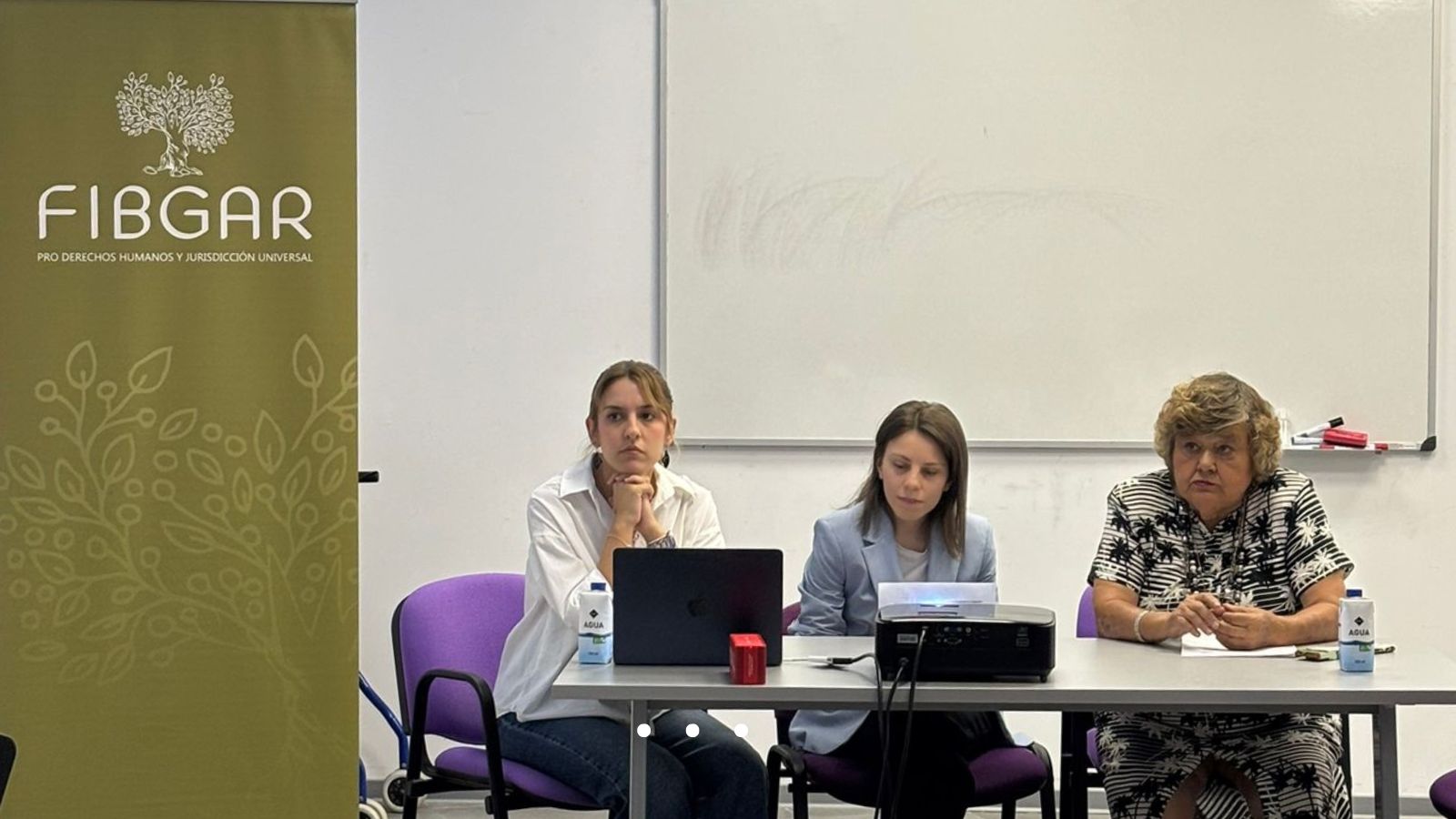
REDMEM event: ‘Progress and challenges of the 30 years of the Beijing Platform’
On Thursday, 2 October, at the María de Maeztu Equality Space in Madrid, the Women’s Network for Memory and Democracy (REDMEM) convened a meeting entitled ‘Progress and challenges of the 30 years of the Beijing Platform’. Three prominent voices in feminism—Cristina Almeida Castro, Laura Selena Báez Benítez, and María Garzón Molina—reflected on the achievements, current setbacks, and urgent challenges for the future at the conference led by Nadia Gayoso de la Calle, coordinator of REDMEM and head of democratic memory and transitional justice at FIBGAR.
Cristina Almeida Castro: memory of struggle and pending justice
The president of El Club de las 25, Cristina Almeida Castro, opened the debate by recalling that the Nairobi agreements were dominated almost exclusively by men and that, under religious pressure, key recommendations from the equality platform were removed. Despite this, she highlighted a milestone: the Zagreb conference, held in the context of the Yugoslav War, where it was decreed that rape should be recognised as a war crime and not simply as collateral damage.
Almeida believes that this same spirit should lead us today to demand that hunger also be recognised as a war crime, given that it is used as a weapon of subjugation. However, she regrets that the momentum of those years has given way to a climate of regression. For her, the expansion of the ‘manosphere’, an anti-feminist digital space, is a clear symptom of a backlash against women’s advances.
Although she believes that the time is not yet ripe for a new major world conference, Almeida stresses the need to remember the struggle: ‘194 countries committed themselves to the 1995 Beijing Platform for Action, and many are not complying today. We cannot forget that this was a commitment made by states, and we must rely on that.’ Faced with the cruelty of the present, she insists that ‘the time will come for women, to look through the eyes of women,’ as was said in Beijing, a meeting she witnessed first-hand.
Laura Selena Báez Benítez: progress, challenges and the urgency to mobilise
Jurist Laura Selena Baez Benítez, who brought her experience from the Federation of Young Women, focused her speech on the progress and challenges of women’s political and social participation. She pointed out that in recent years the movement has expanded: young people, racialised women and the working classes have gained a central space that was previously limited to institutions. Organised civil society has taken centre stage, consolidating feminism as the backbone of democracy.
However, she warned of a dangerous demobilisation. At the international level, she criticised the lack of records of women murdered in Palestine, the absence of data on sexual violence and the omission of access to health services and abortion for rape victims. ‘International law is not respected in practice,’ she denounced, warning that the UN Security Council is on the verge of collapse and that bilateral human rights agreements are deteriorating.
For Laura, the answer is clear: civil society must mobilise to stop institutions that are incapable of guaranteeing peace and rights. ‘Democracy is defended in institutions but also in the streets,’ she said, calling for women to take to social media and speak out against the rise of hate speech.
María Garzón Molina: the manosphere and digital violence
The president of FIBGAR, María Garzón Molina, addressed one of the most disturbing phenomena of today: digital violence and anti-feminist discourse on social media. She explained how the so-called manosfera (manosphere) claims that women ‘have gone too far’ and constructs a narrative to dismantle feminist achievements. In this space, many men find an identity and a community based on hostility towards women.
The most violent extreme is represented by incels (involuntary celibates), who are responsible for massacres against women inspired by misogynistic ideology. For them, female sexuality has no human value: women are seen as animal objects to be dominated, a belief that fuels rape culture.
María stressed that the only way out is through education and digital literacy, especially for the younger generations. ‘From feminism, we must send simple and clear messages,’ she argued, to counteract the violent and reactionary narrative circulating on the internet.
A present that demands actionThe event organised by the Women’s Network for Memory and Democracy (REDMEM) left an unequivocal message: the achievements of Beijing remain a benchmark, but they are at risk. The three speakers agreed that feminism faces a scenario of democratic setbacks, international crises and new forms of violence, and that it would currently be practically impossible to reach the international agreements that the Beijing Platform for the feminist agenda entailed.
Memory, mobilisation and education are the three keys that emerge from this dialogue. Thirty years after the Beijing Platform, the feminist struggle remains not only a matter of justice for women, but also an indispensable condition for building more democratic, just and humane societies.
To learn more about the work of the Women’s Network for Memory and Democracy (REDMEM), visit their website: www.mujeresporlamemoria.org



